France is one of the largest wine producers in the world, and arguably, one of the most significant, with a wine-making history that dates back to the Roman times. Taste through the different wine regions of France, from Bordeaux, Burgundy, Champagne, to Languedoc-Roussillon, Loire Valley, Rhône, Provence and beyond. Each region is known for different grape varieties, a unique growing environment, and their special wine production philosophy.
163 products
- Red Wine
- Grenache, Mourvèdre / Monastrell, Samso / Carignan, Syrah
- Sustainable, Vegan-Friendly
- Dry
- Medium Bodied
- 750ml
- 14.5% alc./vol
About the Winery
Domaine Andre Aubert
At the very heart of the Rhône Valley, at the northerly tip of the Southern Rhône, lie the vineyards of Grignan-Les-Adhémar. The chances are you haven’t heard the name before, few people have, but the wines are worth seeking out. It’s not a new wine region – vines have been planted here since around 500BC but it is a new name (formerly known as Côteaux-du-Tricastin). Domaine André Aubert, has been formed over decades and today comprises of more than 280 hectares spread from north to south of the prestigious Southern Rhone Valley on the appellations Côtes du Rhône, Côtes du Rhône villages, Visan, and Grignan-les-Adhémar.
Press Reviews
Wine Align
90 points - David Lawrason
This is new appellation (formerly Coteaux de Triscatin) is the northernmost in the southern Rhone. It uses the typical southern Rhone varieties, but none can be more than 80% of the blend. This is a quite elegant, well structured, mid-weight red with some stony minerality, lifted pepper and savoury notes. Not as opulently fruity and rich as many peers, yet very tidy and balanced. The length is very good to excellent. Tasted March 2022
- Rosé Wine
- Cinsault, Grenache, Syrah
- Organic, Vegan-Friendly
- Dry
- Medium Bodied
- 750ml
- 13.5% alc./vol
About the Winery
Mas Carlot

Mas Carlot is situated in the south of the Rhône Valley, extending across 76 hectares of pebbly land southeast of Nîmes. Originally a 17th century farm, this beautiful estate was resurrected in the 1960's by the Blanc family—it is currently run Cyril Mares of the neighbouring and equally reputable property, Mas Bressades.
The appellation of Costières de Nîmes used to be considered part of eastern Languedoc but the climate, soil, topography and wine are far closer to those just over the river in the Southern Côtes du Rhône. It is now a region very much on the up and is widely recognized as a great source of excellent value wine.
- Sparkling Wine
- Chardonnay
- Sustainable, Vegan-Friendly
- Dry
- Medium Bodied
- 750ml
- 12.00% alc./vol
About the Winery
Domaine Baud Père et Fils

The history of Domaine Baud dates back to 1742, and it wasn't until 1950 when René Baud, the 7th generation, rebuilt the vineyard which had suffered from the phylloxera crisis and two World Wars.
Starting with only 4 hectares, the vineyard progressively expanded to 20 hectares with the help of successive generations. Now, managed by siblings Clémentine and Bastien, the 9th generation, the estate continues to flourish and grow, with a strong commitment to sustainable viticulture and preserving the traditions and style that makes the wines of the Jura so unique and incredible.
The estate achieved the Terra Vitis certification in 2014 for its eco-friendly work and environmental preservation.
Press Reviews
Wine Align
92 points - David Lawrason
This is a very tasty, rich, golden hued, well aged chardonnay-based sparkler with an involved nose of cashew, baked apple, nougat and honey. It is almost creamy in texture with fine mousse and very good acidity providing counterpoint. There is pleasant nutty bitterness on the finish; length is excellent.
92 points - John Szabo, MS
A traditional method, pure chardonnay bubbly from the Jura of considerable maturity and toasty-oxidative character, also notable dosage - the style has changed little since last reviewed almost 8 years ago (though this is a new, non-vintage bottling, of course). It's maple syrup and curry-infused with dried citrus and apples, indeed with quite impressive complexity in a mature style. Length and depth are very good. Quality wine, attractively priced in the category. Tasted January 2026.
91 points - Michael Godel
Increased autolysis and also richness from the present bottle of Baud’s Blanc de Blanc. Some maturity here, an evolution of bread and gingered elements that make the wine feel like it’s reached the peak. Complex and flavourful in any case with creamy textures and mouthfeel in between. Last tasted January 2026.
91 points - Sara d'Amato
From an old estate now in the hands of ninth-generation family upstarts, this traditional-method chardonnay Blanc de Blanc comes from the remote, rocky, high-altitude Jura, wedged between Burgundy and Switzerland. Generous yet clean, it leans pleasantly conventional in the best sense. Autolytic notes mingle with florals, tender fruit, and subtle toasty layers. A measured dosage adds welcome weight to an otherwise light-footed palate. Lemon zest, white grapefruit, and sweet cream lead into a nicely poised finish of memorable length. Tasted January 2026.
91 points - Megha Jandhyala, S.J.D., DipWSET.
This is a winsome chardonnay-based crémant, with a subtly toasty flavour profile, led by flavours of green orchard fruit and juicy citrus fruit. It has begun to evolve, showing signs of maturity in the form of notes of toasted nuts and fruit flavours transitioning towards the dried end of the spectrum. The palate has lively acidity and subtle sweetness, with a finish that is slightly bitter adding to the overall sense of freshness. This balanced and classic sparkling is ready to go. Tasted January 2026.
Treve Ring
91 points
This family estate dates back to 1742, but it wasn't until 1950 when René Baud, 7th generation, rebuilt the vineyards, expanding from 4 hectares into 20 hectares over the years. Today the estate is managed by siblings Clémentine and Bastien, 9th generation. This sustainably farmed chardonnay is rooted in the Jura's marl and limestone soils and was fermented in stainless before a year on lees before disgorgement and release. Green apple, white florals, oyster shells, meadow herbs, meringue run the bright, sleek palate, with a bed of creamy lees. There's a lovely streaming anise note that leads to a lengthy finish. Drinking beautifully now, but will hold over the next couple years easy.
- Red Wine
- Carignan, Grenache, Syrah
- Dry
- Medium Bodied
- 750ml
- 14% alc./vol
About the Winery
Domaine Frédéric Brouca

Frédéric grew up in Normandy and met his Canadian wife Elaine at university in Lille, Northern France. They live a nomadic lifestyle (Canada, India, Singapore and USA) though Frédéric spends about half of his time in Faugères. Since early age, Frédéric had a calling for farming and the fierce desire to become a winegrower. After completing a Masters Degree in Finance in 2001, Frédéric went back to college for a Sommelier diploma and started his career as a Burgundy wine broker.
In late 2012, Frédéric and Elaine were fortunate to take over 25 acres of old vines in Faugères, organically farmed for twenty years and deeply rooted in schist soils.
2013 was the inaugural vintage for Domaine Frédéric Brouca. In his modest winery in the village of Laurens, Frédéric is creating a new vision for Faugères wines; fresh, vibrant and made without artifice. Nothing revolutionary, simply returning to our grandparent's ideology of farming and winemaking to craft 'Vins Vivants'. The Faugères Appellation is in the heart of Languedoc in the Hérault department. Here, winemaking dates back to the Greek times and was developed during the Roman Era. It wasn't until the early 1900's, however, that the wines became more widely known for its unique schist soils and moderate Mediterranean climate. These villages are heavily reliant on wine as an important part of their culture and economy.
The area is stunning with mountain views and close proximity to the Mediterranean Sea (20 miles / 30 kms). Faugères has a long history of responsible farming. It boasts the highest percentage of organic vineyards for any AOC in all of France with almost 50% of farmers making the choice.
Press Reviews
Wine Align
91 points - Sara d'Amato
A biodynamically-grown blend of grenache (40%), syrah (30%) and mourvèdre (30%) from the schist soils of the hilly, coastal appellation of Faugères. A low-interventionist style fermented spontaneously with 10 months of maturation in stainless steel vats and neutral oak. Clean and juicy with lively red fruit and hints of peppercorn, anise, pine needles, and juniper. Silky tannins and some warmth on the finish point to a riper vintage. Notably complex but effortlessly drinkable. Very good length.Tasted in magnum at Terroirs & Millésimes 2024.
- Red Wine
- Cabernet Sauvignon, Merlot
- Dry
- Medium Bodied
- 750ml
- 13.6% alc./vol
- Red Wine
- Pinot Noir
- Sustainable
- Dry
- Medium Bodied
- 750ml
- 13% alc./vol
About the Winery
Groupe Bellene
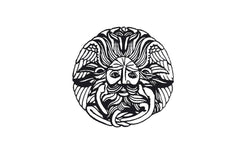
Led by Nicolas Potel in Beaune, Groupe Bellene is composed of the négociant arm Maison Roche de Bellene, the winery arm Domaine de Bellene, and a special back-vintage series under the Collection Bellenum label.
- Maison Roche de Bellene offers a complete range of wines, with an emphasis on individual terroirs from old vines of more than 40 years. All of the growers that Nicolas works with are either organic certified or sustainably farmed.
- Domaine de Bellene represents the wines that are produced and bottled from Nicolas Potel's private vineyard holdings.
- Collection Bellenum is a back vintage series that Nicolas Potel sourced from his friends in the region, offering a magnificent selection of bottled history. The wines have moved only twice in their lives, from the original cellar to Potel's and now to yours!
Nicolas Potel grew up at Volnay's Domaine Pousse d'Or, where his father worked. He trained abroad and returned home in 1996 to build a négociant business and started Maison Nicolas Potel, where he sourced grapes from good parcels, often working with the growers to improve the quality. By 2002, he was making 120 wines from 50 different appellations, and the rest is history!
Press Reviews
Wine Align
90 points - Megha Jandhyala, S.J.D
This is a solid entry-level Bourgogne pinot noir - supple and juicy, brimming with flavours of dark cherries and underbrush, alongside notes of toasted spice and a hint of cured meat. Tannins are ripe and rounded; acids provide just enough lift. The finish is long, ending on a pleasantly herbal note. Tasted March 2025.
90 points - Michael Godel
Nothing quite like a “normal” year to craft the most getable and crushable Bourgogne at the behest and passionate hands of Nicolas Potel. Old vines are in the 45 to 50 year range in highest of high density plantings harvested at a “normal” time in this post-modernist, climate adjusted period. That being the 5th to the 13th of September and fruit already ripe, burning the brix and phenol candle at both ends. Nose in to the promise of violets and roses, dive in for crunchy red fruit and some pretty solid tannins. That early yet necessary pick preserved acids with much to say in a pinot noir as tart and spirited as it is enriching of spirit. Despite the high drink-ability factor the structural parts creep up so wait a year for this to settle further. Drink 2022-2025. Tasted June 2021.
90 points - Sara d'Amato
Lovely, bright, crunchy and lively, this entry level Bourgogne from Roche de Bellene rarely disappoints. With a fine, elegant, and well-integrated oak treatment and an invitingly silky texture, this pinot noir is notably compelling and delivers solid value. Excellent length. Tasted June 2021.
- Red Wine
- Cabernet Franc, Merlot
- Dry
- Medium Bodied
- 750ml
- 13.50% alc./vol
About the Winery
Château du Moulin Noir
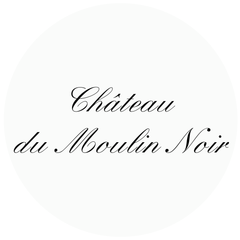
This beautiful right-bank Bordeaux estate consistently produces high-value, elegant and classic Merlot dominant wines and is considered one of the most famous Château of this appellation. Located in Montagne-Saint-Emilion, Château Moulin Noir consists of seven hectares of vineyards on clay and limestone soils.
This château owes its name to a family feuddating back to the Middle Ages. Two brothers were arguing about their father’s legacy with the youngest brother being incredibly jealous that everything went to the elder. He was so jealous that he burnt the château to the ground - Moulin Noir translates to “blackened Mill”.
- Red Wine
- Cabernet Franc, Cabernet Sauvignon, Merlot
- Dry
- Medium Bodied
- 750ml
Press Reviews
Wine Align
90 points (2016) - David Lawrason
The 2016 vintage has put some punch into this inexpensive merlot-based Bordeaux. There is a sense of volume and energy. The nose is quite lifted with blackberry/raspberry fruit, notable herbal presence, some meatiness and spice. It is medium-full bodied, with warm alcohol, juicy acidity and some slightly green tannin. The length is excellent. Best 2025 to 2030
89 points (2016) - Michael Godel
Blends merlot, cabernet sauvignon and cabernet franc for a Right bank bruiser, especially at the cost. The wood is still very much in charge and if the 2014 showing at this stage is any indication then 2016 will need even more time to unwind. In this stage the merlot is in full command, verdant, savoury, herbal and with toasty oak flavours yet settled. Wait on this one. Drink 2022-2026. Tasted November 2021.
- Sparkling Wine
- Chardonnay, Pinot Noir
- Sustainable, Vegan-Friendly
- Medium Bodied
- 750ml
- 12% alc./vol
About the Winery
Champagne Fresne Ducret
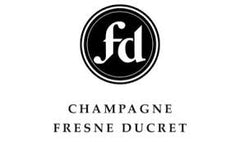
Fresne-Ducret is rich in family history and has been rooted in the premier cru village of Villedommange since the mid 1800s. Originally growing grapes for the big champagne houses, it wasn’t until the end of the second world war that the family decided to make their own wine. The tradition carries on today with Pierre Fresne and his wife Daniella (an Oakville ex-pat). Their philosophy is to produce wines that best exemplify the terroir of Villedommange, and they do this with sustainability in mind.
In 2014, Pierre Fresne embarked on a new adventure by creating a limited series of champagnes based on his desire for experimentation. Since then, he has produced one or two of these wines each year. Each are unique, according to his wishes and the profile of the vintage. This unique collection is called Arquémie, the term for alchemy in the Middle Ages. In 2018 Pierre began converting the vineyards to organic viticulture, and 2021 will be their first organic certified vintage.
Press Reviews
Wine Align
96 points - David Lawrason
This has a very intriguing, generous nose of macaroon (coconut), straw, dried apple, toast and almond/hazelnut. Also a lovely sense of sweet nut fudge. It is medium bodied with fulsome flavour, riveting acidity and all kinds of Champagne minerality. Great focus and length here. Wow! Tasted October 2020
93 points - John Szabo
Fresne Ducret's latest release of this premier cru "Chemin du Chemin champagne is a characteristically smoky and savoury, toasty and biscuity, mature champagne in the English style, balanced and savoury. I really like the developed, mature profile here, the great length. This is very good champagne ready to go. Tasted October 2020.
93 points - Michael Godel
When richness, yeasty and warm toasted brioche get together in Champagne the effect is comforting and potentially hypnotizing. From the Premier Cru village of Villedommange dating back to the mid 1800s, the pedigree is noted and the 48 months of lees aging a coup for creating both a creamy and a revitalizing Champagne. There is an oxidative aspect here and it's effectualness is one that imagines exotic spice cupboards, masala mixes and gingery tisanes. Quite the exotic bubble, lightly frothy, elegantly styled, complex and fine. Drink 2020-2026. Tasted October 2020.
Wine Enthusiast
94 points
This Champagne shows some fine maturity. A blend based on the 2014 vintage, it now has toastiness while keeping intense freshness. Acidity and touches of minerality come through the spiciness. Drink now.
- Red Wine
- Merlot
- Natural, Sustainable, Vegan-Friendly
- Dry
- Medium Bodied
- 750ml
About the Winery
Grains d'Estuaire
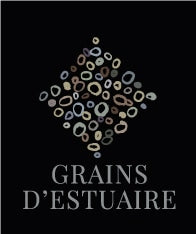
Julien Bonneau, (Château Haut Grelot in the Blayais), and his friend Alexandre Lavigne, restaurateur in Saint-Palais-sur-Mer, created in 2014 a range of wines, Grains d'Estuaire, from 'a 10 ha vineyard located in Saint-Bonnet-sur-Gironde, in the south of Charente-Maritime.
- Red Wine
- Cabernet Franc
- Organic, Vegan-Friendly
- Dry
- Medium Bodied
- 750ml
- 13.50% alc./vol
About the Winery
Château de Parnay
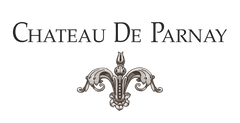
Château de Parnay is the flagship of the AOC Saumur Champigny. The property is located along the Loire river, classified as UNESCO World Heritage, on the most reputable clay and limestone terroirs of the appellation. The historic property was taken over by Mathias Levron & Régis Vincenot in 2006 with the aim of restoring the nobility of this special place.
Drawing their strength from the authenticity of their values, they now cultivate 50 hectares of vines with the aim of producing exceptional wines in a way that respects the environment. They have been certified organic since 2013 and are about to be certified biodynamic too.
The Clos of Chemin des Murs is the jewel of the property! Coming from the imagination of it's orginal owner, Antoine Cristal, this Clos was built, planted and cultivated according to an unprecedented technique. On this half hectare of Chenin Blanc, each vine was planted on the north face of a stone wall. Through a hole in the stone the vine crosses through the wall and allowing the grapes to grow facing the southern sunshine. The vine is said to have its 'foot in the cool and belly in the sun'.
Press Reviews
Wine Align
93 points - Megha Jandhyala
This is a concentrated, complex, gracefully balanced cabernet franc. Notes of ripe red plums, blackberries, dark cherries, tobacco, dried leaves, and violets are interwoven here to form an elegant, engaging, and varietally representative flavour profile. The palate is densely flavoured but lithe, with fine-grained tannins and refreshing acids. The finish is long, layered, and captivating. Though it can be enjoyed now, I would cellar this for 2-3 years. Tasted January 2024.
93 points - David Lawrason
This is a serious cab franc indeed - not so much in terms of weight and power, but in its complexity, poise and length. It’s a deeply coloured for franc. The nose shows fine, ripe raspberry, perfectly pitched by fresh herbs, tobacco and violet. It is loosely structured mid-palate, and a touch warm, with slightly green tannin. The length is excellent. I would age it a year or three. Tasted January 2024
92 points - John Szabo, MS
Silky and refined, elegant but dense, this Saumur Champigny (cabernet franc) is a substantial and serious wine, with a high degree of textbook regional character, complete with a touch of green-herbal, varietal flavour. Tannins are fine and dusty, acids gently salty, and length good to very good. I'd suggest another year or two in the cellar to further refine the texture and develop complexity - potential I think is high. Tasted January 2024.
- White Wine
- Medium Bodied
- 750ml
About the Winery
Domaine Frédéric Brouca

Frédéric grew up in Normandy and met his Canadian wife Elaine at university in Lille, Northern France. They live a nomadic lifestyle (Canada, India, Singapore and USA) though Frédéric spends about half of his time in Faugères. Since early age, Frédéric had a calling for farming and the fierce desire to become a winegrower. After completing a Masters Degree in Finance in 2001, Frédéric went back to college for a Sommelier diploma and started his career as a Burgundy wine broker.
In late 2012, Frédéric and Elaine were fortunate to take over 25 acres of old vines in Faugères, organically farmed for twenty years and deeply rooted in schist soils.
2013 was the inaugural vintage for Domaine Frédéric Brouca. In his modest winery in the village of Laurens, Frédéric is creating a new vision for Faugères wines; fresh, vibrant and made without artifice. Nothing revolutionary, simply returning to our grandparent's ideology of farming and winemaking to craft 'Vins Vivants'. The Faugères Appellation is in the heart of Languedoc in the Hérault department. Here, winemaking dates back to the Greek times and was developed during the Roman Era. It wasn't until the early 1900's, however, that the wines became more widely known for its unique schist soils and moderate Mediterranean climate. These villages are heavily reliant on wine as an important part of their culture and economy.
The area is stunning with mountain views and close proximity to the Mediterranean Sea (20 miles / 30 kms). Faugères has a long history of responsible farming. It boasts the highest percentage of organic vineyards for any AOC in all of France with almost 50% of farmers making the choice.
Press Reviews
Wine Align
92 points - John Szabo, MS
A vermentino (rolle), roussanne, grenache blanc blend from Frederic Brouca's Languedoc operation with a decidedly natural leaning, this is nonetheless a very stable and clean, sapid and saline wine with terrific succulence and plenty of white fleshed orchard fruit, apple and pear, white flowers and sweet herbs. There's plenty of complexity and pleasure on offer, and length and depth are excellent in the category. Lovely stuff that will satisfy the natty crowd, but also those who put top quality above philosophy, a winning formula. Drink or hold 2-4 years - seems to be moving slowly. Tasted January 2026.
92 points - Michael Godel
The Hérault work of Normandy-born Frédéric Brouca brings elements of natural winemaking, experimentation and fantasy, especially to his whimsical bends, as here with grenache blanc, roussanne and vermentino. The IGP of Hérault in the Languedoc-Roussillon on the southern coast of France is the source and Brouca brings forth his cleanest white of utmost purity and clarity for 2024. Fresh is the understatement and overworked the over because this just feels like grapes layered for all the right reasons and without any obfuscation. Energetically charged, dry with notes of lemon and honeycomb, a honeysuckle floral addition and all that matters for what truly works. Drink 2026-2029. Tasted January 2026.
92 points - David Lawrason
This is an organically grown, Mediterranean blend of vermentino, roussanne, and grenache blanc grapes grown on schist soils in the south of France. It was fermented in a mix of concrete, stainless steel, and neutral oak barrels. It shows a soft, complex nose of peach, banana, yellow flower and wet stone with some bready/leesy character. It is medium-full bodied, nicely rounded but not too soft or sweet. Nice dry grip and warmth on the finish. The length is excellent and there is a sense of completion. Tasted January 2026
92 points - Megha Jandhyala, S.J.D., DipWSET.
Frédéric Brouca reportedly takes a low-intervention approach to viticulture and winemaking. This blend of vermentino, roussanne, and grenache blanc was fermented in mixed media including concrete, stainless steel, and neutral oak barrels. There is complexity and nuance on display here, including favours orchard, stone, and citrus fruit. The palate is supple and sprightly, in a pleasing way - the sensation of fullness lifted by lively acidity and a hint of bitterness. This sense of freshness continues on the finish. Tasted January 2026.
- White Wine
- Sauvignon Blanc
- Natural, Sustainable, Vegan-Friendly
- Dry
- Medium Bodied
- 750ml
About the Winery
Grains d'Estuaire

Julien Bonneau, (Château Haut Grelot in the Blayais), and his friend Alexandre Lavigne, restaurateur in Saint-Palais-sur-Mer, created in 2014 a range of wines, Grains d'Estuaire, from 'a 10 ha vineyard located in Saint-Bonnet-sur-Gironde, in the south of Charente-Maritime.
- Red Wine
- Syrah
- Biodynamic, Natural, Organic, Vegan-Friendly
- Dry
- Medium Bodied
- 750ml
- 12.5% alc./vol
About the Winery
Domaine du Coulet - Matthieu Barret
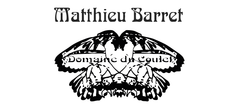
Matthieu Barret was born in Aix-en-Provence in 1975 and studied viticulture in Beaune.
He is the 7th generation vigneron and joined his grandfather in Cornas in 1997. Previously, his family had only been farming and selling grapes. He practices biodynamic viticulture, obtaining very low yields (23 hl/ha) and extraordinary quality. He describes his wines as being 100% grape, with a very low sulphite addition. His wines are extremely clean, and, true to the Cornas character. Domaine du Coulet was founded by Matthieu Barret’s grandfather after WWII, and over the years has supplied grapes to some of the best known producers in the Northern Rhône, including Chapoutier and Delas. While his father eschewed the agrarian lifestyle, opting instead for a career in international business, Matthieu knew early on that he wanted to be a vigneron. In 1998 at the age of only 23, he took over the family’s 25 acres of well-situated vines on the terraced hillsides of Cornas.
From the beginning, Matthieu has employed natural, organic practices and by 2002 (his second year of production) the domaine received its biodynamic certification. With each vintage, Matthieu has gained a better understanding of his vine parcels and through thoughtful experimentation, he now turns out a remarkable selection of Cornas wines that express the unique nuances of each micro-terroir. No new oak, no racking, minimal use of sulfur and no fining or filtration. Pure, sexy Syrah.





























